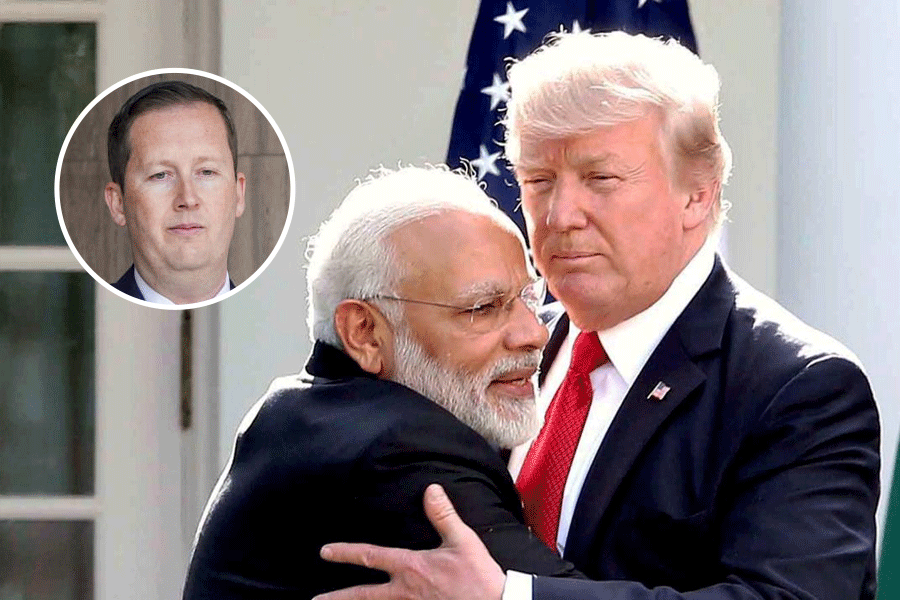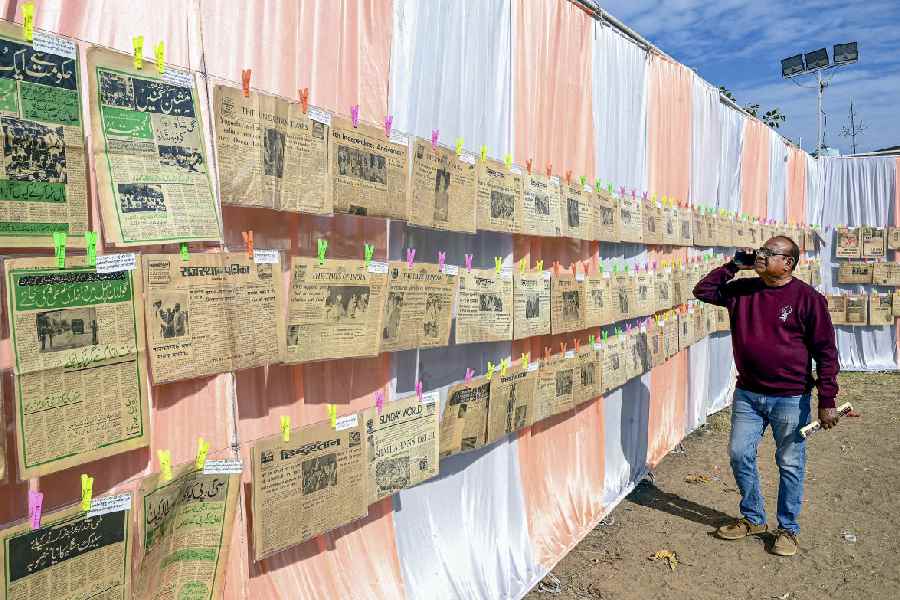
Maninder Puri can relate to the loss of a young son. The killing of Burhan Muzaffar Wani in Kashmir exploded into headlines last week, leading to a vortex of violence, but for Delhi resident Puri, the news just brought back memories of her son.
Three years ago, Puri left for work after giving her son an antacid. In half an hour she received a phone call that changed her life. Her 25-year-old son had suffered a heart attack. What Puri thought was gastric pain was the first signal of an impending heart attack.
"I will never forgive myself. He might have been alive if I hadn't been in such a hurry to get to work," says Puri.
Puri has stopped socialising, skips work regularly and doesn't allow anyone to touch her son's belongings. Experts describe her trauma as "prolonged grief" - a condition that demands medical attention.
"The impact of any loss, expected or unexpected, can be quite overwhelming for the person going through it... How long one grieves, differs from person to person," says Dr Alok Sarin, clinical psychiatrist, Sitaram Bhartia Institute of Science and Research, New Delhi.
Doctors point out that though grief can lead to grave illnesses, very few in India seek professional help to battle their sorrows. "Almost 30 per cent of illnesses, such as obesity or high blood pressure, are related to some form of grief, but people don't realise it," says Monisha Srichand, director, Talk It Over Counselling Services, Bangalore.
Often, grief comes with overriding guilt. Srichand recalls the case of a young woman who lost her father within a year of her marriage. She went into shock, did not cry and held herself responsible for the death, convincing herself that her marriage had led him to neglect his health.
"After four sessions she started crying; after 25 sessions her guilt changed into denial, then anger and finally acceptance of her loss. Now she is in the normal grieving process," Srichand says.
American researcher Toni Miles believes grief is a public health issue, similar to an infectious disease. Miles, who has been studying how the death of a loved one can affect someone's health, maintains that grief, when untreated, can cause illness.
"Insomnia is one. Physical inactivity is another. Each of these can cause 'diabetes-like' state-elevated stress hormones and blood pressure," says Miles, director, Gerontology Institute at the University of Georgia, US. "We have public health research from Sweden, as well as the United States that loss of a spouse, parent or child (even adult children) increases risk of illness. In population data, we can see that with these losses, your own risk of dying is elevated for the next 10 years," Miles states.
Some researchers believe there is a condition called "addiction to grief" - when a person does not want to stop grieving. "These people can't see the meaning of life without the deceased loved one, long for him or her and are unable to experience joy, or if they do, feel as if it were a betrayal to the deceased person," explains Holly G. Prigerson, professor of sociology in medicine, Weill Cornell Medical College, New York.
She states that brain imaging studies have compared the experience of grief with that of addiction. "We have studied grief reactions in thousands of bereaved survivors... and there is a significant minority, about 10 per cent, that do get stuck," Prigerson says.
In the West, the need for grief counselling arises mostly in cities among people with little family support. "I went through a grief recovery programme with a grief counsellor for several months. It helps to talk about all your feelings with someone who understands the grieving process," says Virginia-resident Kia Scherr, who lost her husband and teenage daughter in the 2008 Mumbai terror attacks.
"I had to slow down and allow myself time and space to get re-oriented to a life without my husband and daughter. I still grieve; I still feel the loss and I cry sometimes. But I have embraced life more fully now," says Scherr, who runs a global peace initiative called One Life Alliance.
In India, however, grief counselling is still at a nascent stage. For long years, close family members and the extended family were the safety net for those in grief. But over the years, family units have broken down, and many live far away from their relatives.
To top it, grief counsellors in India are not easy to come by. Indeed, in a country beset with numerous health problems, counselling for grief is not seen as an area that needs to be focused on.
"It's only last year that we got our first ever National Mental Health Policy," points out Dr G. Prasad Rao, president, Indian Psychiatric Society.
According to the Mental Health Atlas 2011 of the World Health Organization, mental health expenditure by the Centre was just 0.06 per cent of the total health budget, compared to 0.44 per cent in Bangladesh and 10.65 per cent in the Netherlands. According to the Union ministry of health and family welfare, the entire mental health workforce, comprising psychiatrists, psychologists, psychiatric social workers and psychiatric nurses stands at 7,000, while the actual requirement is around 55,000.
"We are still in the stages of creating awareness about mental health. Even doctors from other disciplines don't realise the acute need for psychiatrists," Dr Rao says.
In India, there are roughly 4,000 psychiatrists for a population of 1.2 billion. Just the state of California, with a population of 38 million or so, has 4,500 psychiatrists. "There are more Indian-origin psychiatrists in the US than in India," says Dr Samir Parikh, director, department of mental health and behavioral sciences, Fortis Healthcare, New Delhi.
"We still haven't understood the need for psychiatrists. People talk about anxiety, depression or grief, but don't go to a professional for help," says Dr Shyam Bhat, founder of seraniti.com, an online therapy and mental health services portal. "But we should, because complicated grief can affect self-esteem. Some even become suicidal," Dr Bhat warns.
There is one form of grief counselling that is in India - and that is when bereaved relatives are counselled in government-run hospitals on organ donation. "My work involves convincing relatives of the deceased to give consent for organ donation. Our counselling is restricted to helping them come to terms with the loss and do a noble cause," says Abid Husain, grief counsellor, Guru Teg Bahadur Hospital, Delhi.
But some hospitals do realise the need for grief management. Last year, Holy Family Hospital in Delhi held a lecture on grief counselling for its medical staff. "The idea was to sensitise our staff. Often they have to deal with all sorts of reactions from families who have lost their loved ones," says Dr Sumbul Warsi, medical superintendent.
Fortis Healthcare has launched a project for all its hospitals across the country on grief counselling. A team of professionals, headed by Dr Parikh, will train medical staff on this. Several private counselling centres offer group sessions for grief therapy, similar to those conducted by groups such as Alcoholic Anonymous.
Loss is inevitable and grief has a life of its own. But there are occasions when grief goes beyond simple sorrow. Time is not always a great healer.
Loss count
- Prolonged grief disorder occurs in about 10 to 15 per cent of bereaved people
- Around 30 per cent of illnesses are related to some form of grief
- Mortality rate among surviving spouses increases 40 to 70 per cent in six months following a loss
- Unresolved grief can lead to substance abuse and suicidal tendencies
- India requires a 55,000-strong mental health workforce; at present there are 7,000 mental health workers, including psychiatrists.
Sources: The American Psychological Association, The American Journal of Psychiatry, and the Union Health Ministry










